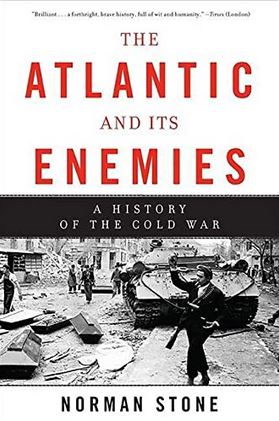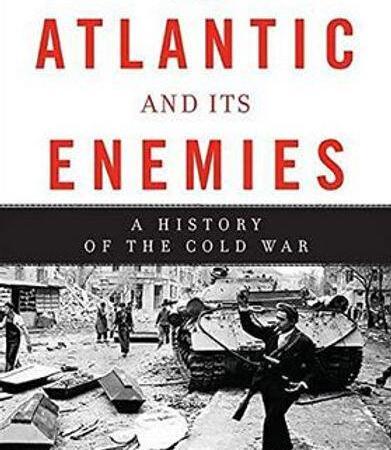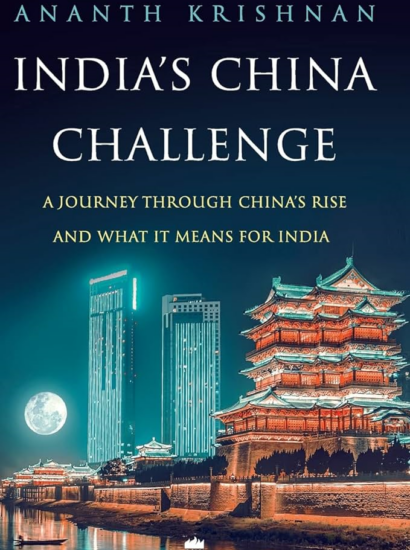A History of the Cold War
Norman Stone, (London, 2010). pp. 688.

amazon.com
This is an infuriating book: the basic tenets of which are that Communism is bad and that the Anglo-US axis (the “Atlantic” of the title) invented Europe, and that all good in Europe stems henceforth. The first point is valid in the sense that Communism, as practised in reality, has been, on balance, a bit of a catastrophe. However, the late Norman Stone repeats this point relentlessly, which makes for tiresome reading.
The second point here is an exciting and attractive idea, yet, to say that Stone elaborated this badly would be a chronic understatement. The work unfolds as a pseudo-intellectual history of the Cold War (think Tony Judt, but more to the right and less humble), where in reality, it reads as a polemic aimed at dismissing those of a left-leaning bent (some of these to be fair, earn Stones scorn) and the big problem with the work is that Stone is constantly trying to dismiss those with whom he disagrees. The manner in which he does this has all the poise and decorum of Alan Partridge at his finest and, as such, comes across as petulant point-scoring. As a work of history, the book is poor; Stone frequently makes claims and assertions that any good historian—never mind a serious academic—would provide sources for, yet Stone consistently fails to do so. This problem probably stems from the fact that Stone, being somewhat of an active participant or close observer of many events of the Cold War, may inadvertently forget he is not writing a biography.
Stone frequently makes claims and assertions that any good historian — never mind a serious academic — would provide sources for, yet Stone consistently fails to do so.
Furthermore, Stone frequently alludes to people of supposed merit by titles such as “an intrepid journalist” or “a standard-issue Belgian socialist” or even more “a Dutchman” and, in doing so, often fails to mention names. This practice makes verification of his claims difficult. Moreover, as these titles are oft used to mock or diminish the subject, it is likely that Stone is casting aspersions and does not want to be found out. On top of this, Stone makes profoundly untrue claims, such as; Hiroshima and Nagasaki being principal Japanese cities or that the B29’S sent to the UK during the Berlin Crisis were nuclear-armed. Even worse, directly contradicting himself, a fine example of this involves his digressions on Ted Kennedy, who is at once “lucky to avoid charges of manslaughter” and has a “reputation of manslaughter”. Here it seems that Stone is casting aspersions. Reading this book is unrewarding, especially if you’re looking for something of a well-written historical standard; it appears that Stone is an unreliable narrator. While reading, it is clear that Stone had extensive knowledge and experience, so one could expect this book to be so much more than the final product. Sadly Stone seems to take glee in making lusciously overblown claims and engaging in profound pettiness, all of which make this a book that is infuriating to read.
Dermot Nolan has spent 12 years in the Army Reserve in Ireland, where he served in the Artillery Corps. He holds a master’s degree in Military History and Strategic Studies from the National University of Ireland at Maynooth. In addition, he has a master’s degree in International Relations and International Security from the Rijksuniversiteit Groningen in the Netherlands. His fundamental interests are modern land- and air-power and nuclear deterrence. His work has been published in European Security and by Finabel-The European Army Interoperability Centre. He currently lives in France, where he is working on mastering the language.






